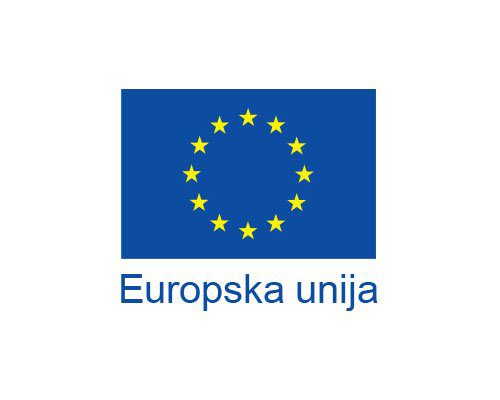GYMS4YOU d.o.o., headquartered in Zagreb at Radnička cesta 39, registered in the Commercial Court Registry in Zagreb under registration number (MBS) 080928102, OIB: 75049241440 (hereinafter referred to as 'GYMS4YOU'), collects, utilizes, and manages your personal data located on the website https://gyms4you.com/.
The website https://gyms4you.com/ utilizes cookies and similar technologies for several purposes, depending on the context or product, including:"
GYMS4YOU cannot influence the processing of personal data conducted by third parties.
GYMS4YOU does not use cookies for any purpose other than those described in the Privacy Policy and these Rules.
| NAME | TYPE AND DURATION | BRIEF DESCRIPTION |
|---|---|---|
| _clck | Microsoft Clarity, 1 year, (marketing cookie) | This cookie stores a unique user ID. |
| _fbp | Facebook, 3 months (marketing cookie) | This cookie stores and tracks visits across all websites. |
| _ga | Google Cookie, 2 years (statistical cookie) | This cookie assigns a unique ID used for collecting statistical data on how visitors use the website. |
| _ga_HG6DKD26T6 | Google Cookie, 2 years (statistical cookie) | This cookie assigns a unique ID used for collecting statistical data on how visitors use the website. |
| _moove_gdpr_popup | GDPR Cookie Compliance, session (technical cookie) | This cookie stores cookie consent settings. |
| sbjs_current | Sourcebuster JS, 6 months (statistical cookie) | This cookie is used to store browser details. |
| sbjs_current_add | Sourcebuster JS, 6 months (statistical cookie) | This cookie is used to store browser details. |
| sbjs_first | Sourcebuster JS, 6 months (statistical cookie) | This cookie is used to store browser details. |
| sbjs_first_add | Sourcebuster JS, 6 months (statistical cookie) | This cookie is used to store browser details. |
| sbjs_migrations | Sourcebuster JS, 6 months (statistical cookie) | This cookie is used to store browser details. |
| sbjs_session | Sourcebuster JS, session (statistical cookie) | This cookie is used to store browser details. |
| sbjs_udata | Sourcebuster JS, 6 months (statistical cookie) | This cookie is used to store browser details. |
What cookies are used by Google LLC and its affiliated companies?
The website https://gyms4you.com/ utilizes certain Google services, through which, via cookies, Google LLC collects specific personal data (hereinafter referred to as: Google).
The aforementioned term encompasses:
- Google applications,
- websites, and
- devices such as Search, YouTube, and Google Home platforms including the Chrome browser and the
Android operating system
- products integrated into third-party applications and websites such as ads and
- embedded Google Maps.
When you are signed in and interact with certain Google services, such as posting a comment on a YouTube video, your name and picture may appear alongside your activities. Google may also display this information in ads, depending on your settings.
Google may publicly share certain categories of data with its partners, such as advertisers or developers. Additionally, Google allows certain partners to collect data from your browser or device for advertising and measurement purposes using their own cookies or similar technologies.
Google utilizes cookies for various purposes. For example, to remember your safe search settings, to provide you with more relevant advertisements, to count visitors to individual pages, to assist you in registering for certain Google services, to protect your data, or to remember your ad settings.
Below, you can see a list of cookie types used by Google and learn how Google and its partners use
cookies in advertising.
1. The use of 'Settings' cookies
These cookies enable Google websites to remember information that changes the behavior or appearance of the website, such as selected language or region. For example, when it remembers your region, the website can offer local weather forecasts or traffic condition news. These cookies can also help you change the text size, font, and other parts of the web pages that you can customize.
If the information stored in the settings cookie is lost, the functionality of the website may be
compromised, but it should not prevent the website from functioning.
Example:
Most Google users have a settings cookie in their browser called 'NID.' The browser sends this cookie with
requests to Google websites. The 'NID' cookie contains a unique ID that Google uses to store your settings
and other information, such as your selected language (e.g., Croatian), the number of search results you
want to be displayed per page (e.g., 10 or 20), and whether you want Google's safe search filter to be
enabled.
2. The use of 'Security' cookies
Google utilizes security cookies to authenticate users and protect user data from unauthorized parties.
Example:
Google utilizes cookies 'SID' and 'HSID,' which contain digitally signed and encrypted records of the user's
Google account ID and the time of the last login. The combination of these two cookies enables Google to
block many types of attacks, such as attempts to steal the content of forms you have filled out on
websites.
3. The use of 'Processes' cookies
Process cookies assist websites in functioning and providing services that website visitors expect, such as aiding navigation through web pages or accessing secured areas of the website. Without these cookies, the website cannot function properly.
Example:
Google utilizes a cookie called 'lbcs' which enables opening multiple documents in one browser for Google
Docs. Blocking this cookie would prevent the proper functioning of Google Docs.
4. The use of 'Advertising' cookies
This category of cookies assists Google in making advertising more engaging to users and more valuable to publishers and advertisers. Cookies are typically used to select ads based on their relevance to the user, to improve campaign performance reporting, and to avoid showing the same ads to individual users repeatedly.
Example:
Google uses cookies NID and SID for customizing ads on Google products such as Google Search. For
instance, Google utilizes these cookies to remember your recent searches, your previous interactions with
ads or advertiser search results, and your visits to advertiser websites. The latter enables the display of
tailored ads on Google.
Google also utilizes one or more cookies for ads served on the web. One of the primary advertising cookies on non-Google websites is called 'IDE,' and it is stored in browsers under the domain doubleclick.net. Another similar cookie is stored under the domain google.com and is called 'ANID'.
Google also utilizes DSID, FLC, AID, TAID, and exchange_uid. Other Google products, such as YouTube, may also use these cookies to display more relevant ads.
Sometimes, advertising cookies may be set on the domain of the website you visited. In the case of advertising served by Google across the web, cookies "__gads" or "__gac" may be set on the visited website's domain.
Unlike cookies set on Google domains, Google cannot read these cookies when you are on websites where they are not set.
Their purpose is to measure interactions with ads on that domain and prevent excessive display of the same ads to users.
Additionally, Google also utilizes conversion cookies, whose main purpose is to assist advertisers in
determining how often individuals who click on their ads actually purchase their products.
5. The use of 'Session State' cookies
Websites often gather information about users' interactions with the website. This may include data on which pages users visit most frequently and whether they receive error messages from certain pages. These 'session state cookies' help Google improve its services to provide users with a better browsing experience.
Blocking or deleting these cookies will not render the website unusable.
Additionally, these cookies may also be used for anonymously measuring the effectiveness of PPC (pay- per-click) and affiliate advertising.
Example:
The cookie called 'recently_watched_video_id_list' is used for the YouTube service to record which videos
a specific browser has watched recently."
6. The use of 'Analytics' cookies
Google Analytics is a Google tool for analytics that helps website owners, including the owners of the website https://gyms4you.com/, as well as applications, to understand how their visitors use the features 6 of their websites and applications. It can utilize a set of cookies to collect information and report on website usage statistics without disclosing the identity of individual users to Google. The main cookie of Google Analytics is "_ga". For more information on the analytical cookies used by GYMS4YOU, see the previous text, in the table that displays the cookies used by https://gyms4you.com/."
In addition to reporting website usage statistics, Google Analytics can be used, along with some of the previously described advertising cookies, to display more relevant ads on Google products (e.g., on Google Search) and on the web, as well as to measure interactions with the ads we display.
Learn more at:
https://developers.google.com/analytics/devguides/collection/analyticsjs/cookie-usage?hl=en.
Exporting and deleting data collected via cookies using Google services:
At any time, you can export a copy of your data or delete it from your Google account.
Optionally, you may export the content from your Google account to securely back it up or use it on a service outside of Google.
To delete your data, you can:
A.1. Deleting all cookies from the computer:
If you remove cookies, you will be logged out of websites, and your saved settings may be deleted.
How to do it:
A.2. Deleting cookies from a specific website:
How to do it:
A.3. Deleting cookies for specific periods:
How to do it:
B. Changing Google cookie settings
You can allow or block cookies stored by websites.
B.1. Allowing or blocking cookies according to default settings:
B.2. Blocking cookies from other websites
When visiting a website, you can allow cookies from that website while blocking those from other websites that own ads or images on that webpage. To block third-party cookies, enable the 'Block thirdparty cookies' option.
This will block all cookies and site data from other websites, even if the website is allowed on the exception list
B.3. Allowing or blocking cookies from a specific website
If you allow cookies by default settings, you can still block cookies from a specific website.
Note: If you're using Chrome at work or school, you might not be able to change this setting. If you need further assistance, please contact your administrator
B.4. Deleting cookies after closing Chrome
You can allow websites to remember information during your browsing session, but automatically delete cookies when you close Chrome.
If you have further questions or if there are specific uncertainties, you can contact Google and their
privacy office, or you can also reach out to the Croatian Personal Data Protection Agency.
You can control and/or delete cookies as you wish.
You can delete all cookies that are already stored on your computer, and most web browsers settings allow you to block the storage of cookies.
If you block cookies, you may need to manually adjust some desired settings each time you visit the website, and certain services and features may not be available
GYMS4YOU allows you to update your cookie settings at any time.
If you prefer not to manage your preferences through the GYMS4YOU website, GYMS4YOU informs you that there are currently several websites available to opt out of cookie storage for various services
You can find more information on the following websites:
The following websites can also be of great assistance to you:
If you wish to contact GYMS4YOU regarding these Rules and how the website uses your data, GYMS4YOU kindly asks you to contact the Data Protection Officer at personaldata@gyms4you.com.
Gyms4you fitness centers are located in 34 locations in 7 cities and are provided with top-quality equipment. The working hours of the gym are 24/7, which enables members to exercise at any time of the day or night at any of our locations. Members can train in all centers with only one card - regardless of where they initially joined.
Final recipient of the financial instrument co-financed from the European fund for regional development as part of the operational program "Competitivenes and cohesion"
© 2025. GYMS4YOU d.o.o. – The European Concept of Fitness Centers / All rights reserved




These cookies enable interaction with the service or website so you can access basic features to provide that service. They relate to the requested service, such as the session identifier of the current visit. They do not store information that can identify the user.
More about cookies: Cookie Policy
These cookies enable the collection of data in an aggregated form without identifying the user. They are used to track user behavior on the website for market research and analytics purposes. These insights enable the website to improve content and develop better features that enhance the user experience.
Najprije omogućite Neophodne kolačiće kako bismo mogli spremiti vaše postavke!
These cookies allow the collection of information about user habits and behavior on the website for displaying relevant advertisements to the user tailored to their interests. They can also be used to measure the effectiveness of campaigns.
Najprije omogućite Neophodne kolačiće kako bismo mogli spremiti vaše postavke!